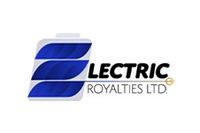Glencore Spends $960 Million on DRC Copper and Cobalt Mines
The company bought the remaining stake in the Mutanda mine and increased its interest in Katanga mine.
Glencore (LSE:GLEN) upped its involvement in the copper and cobalt markets this week after paying $960 million to increase its stakes in two copper-cobalt operations in the Democratic Republic of Congo (DRC).
The major miner now owns 100 percent of Mutanda Mining and about 86.33 percent of Katanga Mining (TSX:KAT), according to a statement released Monday (February 13). It bought a 31-percent stake in the former and a 10.25-percent stake in the latter from resource group Fleurette Properties.
Israeli billionaire Dan Gertler, senior adviser to Fleurette, said the group is committed to the DRC, where it has operated for two decades, but believes it is the right time to sell its interests in both Katanga Mining and Mutanda Mining.
The news pushed Glencore’s share price to its highest point since November 2014 on Monday.
The first mover advantage
It might seem strange that Glencore is upping its stake in the DRC, where political risk is high and human rights are threatened. However, there are a number of reasons the company is doing so.
Perhaps most notably, the deal will give Glencore greater exposure to copper and cobalt, which both have positive price outlooks.
The cobalt price has climbed nearly 50 per cent since September, driven by demand for lithium-ion batteries, which use the metal as a raw material. According to Macquarie, a deficit of 885 tonnes is expected next year, with deficits of 3,205 tonnes and 5,340 tonnes expected in 2019 and 2020, respectively.
Some experts are also calling for a copper deficit on the back of supply disruptions at top-producing mines Escondida and Grasberg.
The deal will also allow Glencore to part ways with Gertler, whose business in the DRC and relationship with Joseph Kabila, the country’s president, has attracted scrutiny from the US Department of Justice.
Analyst Paul Gait of Bernstein believes Glencore has done well to consolidate a leading position in the DRC.
“We have long held that the DRC will play a critical role in supplying the world’s future demand for both copper and cobalt,” he said, adding, “[t]he first mover advantage here will be key. Glencore is prepared to invest in the DRC and will reap the rewards that accrue from being prepared to do so.”
About Mutanda and Katanga
Mutanda Mining and Katanga Mining operate the Mutanda and Katanga mines, respectively. As mentioned, both produce copper and cobalt, though production is currently suspended at the Katanga mine.
Mutanda produced 213,300 tonnes of copper and its cobalt production rose almost 50 percent to 24,500 tonnes last year, according to Glencore. The mine is considered one of Glencore’s main growth assets and is a key operation in the DRC, largely thanks to its high ore grades and low expansion costs.
In 2015, Katanga produced about 113,00 tonnes of copper and 2,900 tonnes of cobalt before operations were suspended in September of that year. The suspension continued through 2016 and production is expected to resume once cost-cutting upgrades to the processing circuit are completed, likely in the second half of 2017.
Glencore has said Katanga has the potential to become Africa’s largest copper producer and the world’s largest cobalt producer, but has not announced specific plans to increase output there or at Mutanda.
If it does, it’s possible that it will ease the predicted cobalt and copper deficits. However, analysts seem confident that demand for cobalt from outside the DRC will remain strong.
“The global cobalt market is becoming ever more dependent on supply from the Democratic Republic of Congo, where geopolitical risk is again rising … with a transfer of presidential power due next year, a process which has not gone smoothly over history,” Macquarie’s Colin Hamilton said.
Don’t forget to follow us @INN_Resource for real-time news updates!
Securities Disclosure: I, Priscila Barrera, hold no direct investment interest in any company mentioned in this article.

